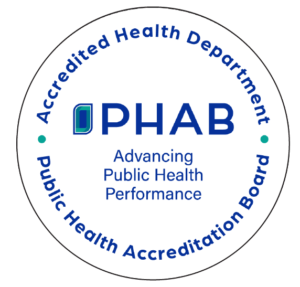What is pneumonia?
Pneumonia is a sickness of the lungs. Pneumonia can cause sickness of the upper respiratory tract (nose, throat and windpipe) and can spread to the blood, lungs, middle ear, or nervous system. Pneumonia mainly causes sickness in children younger than 2 years old and adults 65 years of age or older. The elderly are most likely to get seriously sick and die from pneumonia. Also, people with certain medical conditions such as chronic heart, lung, or liver diseases or sickle cell anemia are also at increased risk for getting pneumonia. People with HIV infection, AIDS, or people who have had organ transplants and are taking medicines that lower their ability to fight off infections are also more likely to get pneumonia.
What causes pneumonia?
Viruses, bacteria, and sometimes fungi can cause pneumonia. Bacteria called Streptococcus or S. pneumoniae cause Pneumococcal pneumonia. S. pneumoniae is also called pneumococcus.
How do you get pneumonia?
The bacteria that cause pneumonia are spread through contact between people who are sick or who carry the bacteria in their throat. You can get pneumonia from respiratory droplets from the nose or mouth of a person that has pneumonia or who carries the bacteria. It is common for people, especially children, to carry the bacteria in their throats without being sick.
What are the symptoms (signs) of pneumonia?
Pneumonia may begin suddenly. You may first have a strong shaking chill that is usually followed by:
- High fever
- Cough
- Shortness of breath
- Rapid breathing
- Chest pains
Other symptoms may include:
- Nausea (upset stomach)
- Vomiting
- Headache
- Tiredness
- Muscle aches
How do you know that you have pneumonia?
If you think you may have pneumonia, you should see your doctor. They can tell you if you have pneumonia based on your symptoms, physical exam, laboratory tests and chest x-ray. Your doctor will say that you have pneumococcal pneumonia if they find S. pneumoniae bacteria in your blood, saliva, or lung fluid. Other bacteria and germs can cause pneumonia. If you have the symptoms of pneumonia, you should see your doctor right away and follow their directions to get better.
How is pneumonia treated?
If your pneumonia is caused by bacteria, your doctor will give you antibiotics to treat it. The symptoms of pneumococcal pneumonia usually go away within one to three days after you start taking medicine. If you are more likely to get pneumonia because of your age or a medical condition, talk with your doctor about what you can do to prevent it.
How can I stop from getting pneumonia?
There is a vaccine for pneumococcal pneumonia for children and adults. The National Immunization Program (NIP) of the Centers for Disease Control and Prevention recommends that you get the pneumococcal pneumonia vaccine if you are in any of the following groups:
- You are 65 years old or older;
- You have a serious long-term health problem such as heart disease, sickle cell disease, alcoholism, lung disease (not including asthma), diabetes, or liver cirrhosis;
- Your resistance to infection is lowered due to 1) HIV infection or AIDS; 2) Lymphoma, leukemia, or other cancers; 3) Cancer treatment with x-rays or medicines; 4) Treatment with long-term steroid medicines; 5) Bone marrow or organ transplant; 6) Kidney failure or kidney syndrome;
7) Damaged spleen or no spleen; or
- You are an Alaskan Native or from certain Native American populations
NIP also recommends that all babies and children younger than 2 years old get the pneumococcal vaccine. Call your doctor to find out if you or your child should be vaccinated for pneumococcal pneumonia.

